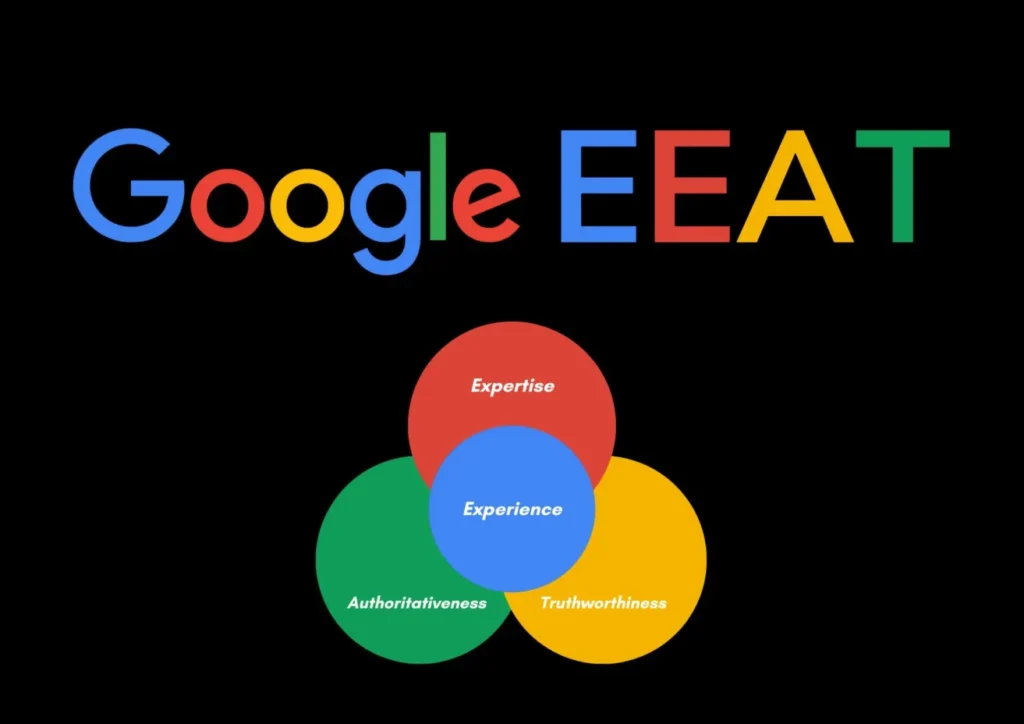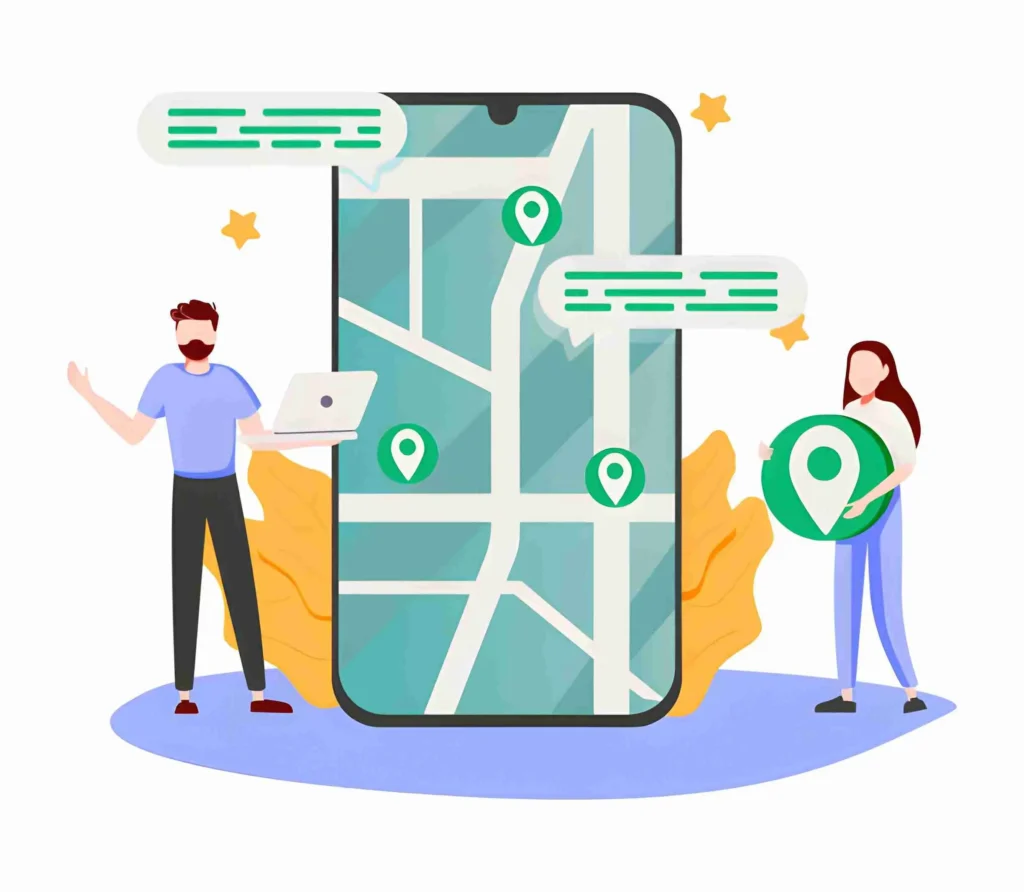
How to Leverage E-E-A-T for Local SEO- Techqubix
Google’s E-E-A-T concept stands for Experience, Expertise, Authoritativeness, and Trustworthiness and this concept is used by search rating algorithms to determine the quality of search engine results. This concept is used by search ranking algorithms to identify search engine results that are credible.
E-E-A-T for Local SEO
As much as the concept doesn’t directly affect rankings, it is one that Local SEO professionals should follow in order to become successful as E-E-A-T is about building trust based on a business’ reputation and the professional qualities of its employees.
Here’s how to apply the concept for Local SEO:
- Authoritativeness
- Expertise
- Experience
- Trust

Authoritativeness
According to Google, there is a concept that is known as “Authoritativeness”, referring to when a business or creator of content is known for being a trustworthy source about a topic. The creator of the content, the content itself, or even the website itself can all demonstrate authority by being authoritative in terms of the content.
There are several ways in which local SEO can occur…
Examples of authoritativeness:
- If you are looking for current promotions, you should check out a business’s Facebook page
- An opinion piece about a relevant topic is published on a local news outlet by a team member
- An investigational content page AND product/service pages cover a target topic in-depth on the business’s website.
Businesses can position themselves as authorities in a number of ways.
How to implement:
Business info
The ability to provide accurate information about your business across the web can be a great way to earn authority. This is because it builds trust around your website for general company info and contact information.
- Having complete and updated information about a business’s services and its own website is a sign that the website is authoritative. There are several types of pages, such as an “about” page, a team page, contact details and a location page, as well as product/service pages (such as local landing pages).
- Complete and accurate information for your Google Business Profile information such as business categories, contact information, and relevant photos.
- Be sure that the details about your business are accurate and relevant on other properties such as Yelp, Bing Places, and Apple Maps.
- Your business should have accurate and up-to-date information on your social media profiles, such as Facebook.
Design elements
As a general rule, the business website should be easy to navigate, and provide for users to get more information about the business’s history, location(s), contact information, team members, reviews / customer testimonials, products / services, as well as a menu (if it’s a restaurant).
Social following
Growing a following on social media probably also contributes to authority. Employees may also be affected by this as their personal brands are associated with them.
Wikipedia presence
An organization can have a Wikipedia page if it is notable or if it has a large following, which indicates that the organization is trustworthy and authoritative.
Expertise
Content creators are rated according to the depth of their expertise in a particular subject area as determined by Google.
Examples of expertise
- Customer testimonials that are verified to be positive about a specific product or service
- A consistent stream of positive Google reviews for products or services is generated
- Blog posts (website content) are written by experts that have first-hand experience in their subject
- A website’s content demonstrates subject matter expertise (such as the number and quality of posts on the subject).
There are a number of steps which can be taken to showcase and/or build expertise within your niche, even when expertise cannot be directly controlled.
How to implement:
Google reviews
Consistently receiving positive Google reviews is an effective way to showcase the expertise of a business. It will help to increase the visibility and conversion rate of your business profile if other users vouch for your product / service expertise. Develop a strategy to generate reviews frequently and continuously.

3rd Party reviews
For businesses in the legal niche, FindLaw, for example, is a great source of reviews that can also be managed through Google Reviews.
Author bio
The best way to increase your site’s topical relevance is to post content about relevant questions. These pages should have an author bio that illustrates the author’s credibility. Howcases the author’s expertise and experience on the subject matter.
Topical relevance
As far as a website’s topic(s) are concerned, it should have relevance around them. Content about transactional and investigational keywords with an authoritative author is essential. Businesses in local areas should have a content strategy that encompasses the entire spectrum of their topic (such as service pages, subservices, and FAQs), as well as all aspects of their topic.
Experience
As part of the December 2022 update, Google introduced an example of a content creator or business that has become a “go-to source” for information on a particular topic. There are several ways to showcase experience in Local SEO.
Examples of experience:
- The author’s bio should include a significant amount of information about the author’s industry experience
- Numbers indicating years of experience or completed projects are displayed as design elements
- Reviews from customers who have had good experiences with a particular product or service
Businesses can demonstrate their experience in a number of ways.
How to implement:
Founding date
The founding date or years in business are an easy way to showcase experience. You can add this field when you create a Google Business Profile or retroactively. It is best to leverage this as social proof throughout the website’s content if it is an important figure (such as Since 1985 or 10+ years in business).
Completed projects
It is also possible to demonstrate your local business’ experience by citing numerical values such as the number of completed projects or sharing case studies. It is not uncommon for plumbers to have only been in business a few years, but to have completed hundreds of projects. In the same vein, niche law firms may have only handled a handful of cases, but collected over $500M in client fees. In your website, these elements should be featured on relevant pages.
Reviews & testimonials
As well as showcasing industry experience, getting reviews can benefit your business. If you were to choose a marketing agency that claimed to be the best in St. Louis, who would you believe had more experience, brands, Reviews and testimonials can easily be featured with text or video embeds so that they’re included and showcased on relevant landing pages.

Trust
As a result, you will likely see an increase in visibility in Google Search & Maps as a result of demonstrating expertise, experience, and authority with prospective and existing customers. in addition to converting customers at a better rate.
In order to build trust with search engines and users – regardless of the platform – these are all elements you should keep in mind when building your brand online.
Frequently Asked Questions
How do you leverage local SEO?
– Optimize Google My Business: Claim and update your GMB listing with accurate information.
– Use local keywords: Incorporate location-specific keywords in your website content.
– Get listed in local directories: Ensure your business is listed in relevant local directories for increased visibility.
How do I optimize my website for local SEO?
– Include local keywords: Use keywords that reflect your location in your website’s titles, headings, and content.
– Create location-specific content: Develop content tailored to your local audience and their interests or needs.
– Ensure NAP consistency: Maintain consistency in your business’s Name, Address, and Phone number across all online platforms and directories.
What is the best strategy for local SEO?
– Focus on local citations: Ensure your business is mentioned consistently across various online platforms and directories.
– Encourage reviews: Encourage satisfied customers to leave positive reviews on platforms like Google My Business.
– Optimize for mobile: Ensure your website is mobile-friendly to cater to users searching for local businesses on their mobile devices.
How do you leverage SEO?
– Perform keyword research: Identify relevant keywords that your target audience is using to search for businesses like yours.
– Optimize on-page elements: Optimize your website’s titles, meta descriptions, headings, and content for the identified keywords.
– Build high-quality backlinks: Earn links from reputable websites in your industry to improve your website’s authority and search engine rankings.
Conclusion
The article outlines the significance of Google’s E-A-T concept (Experience, Expertise, Authoritativeness, and Trustworthiness) in local SEO strategies. While not directly influencing rankings, adhering to E-A-T principles is crucial for establishing trust and credibility. Businesses aiming to succeed in local SEO should focus on demonstrating Authoritativeness by providing accurate and comprehensive business information across various online platforms, showcasing Expertise through positive reviews, topical content, and author credibility, highlighting Experience through founding dates, completed projects, and client testimonials, and ultimately building Trust with both search engines and users by incorporating these elements into their online brand presence. By prioritizing E-A-T principles, businesses can enhance their visibility, credibility, and conversion rates in local search results.